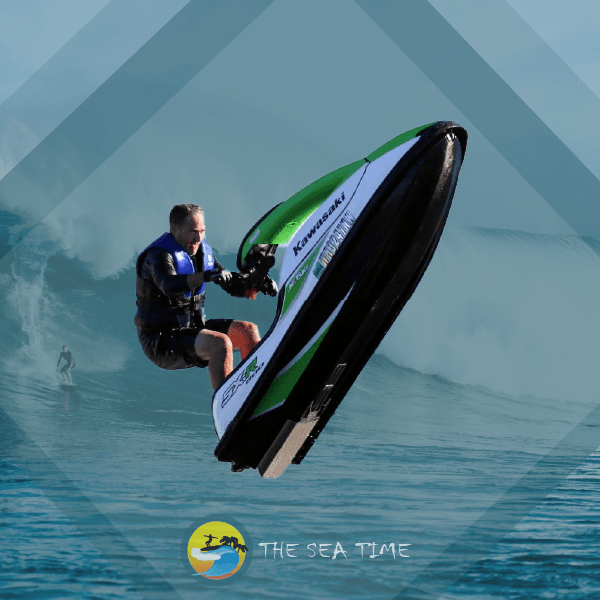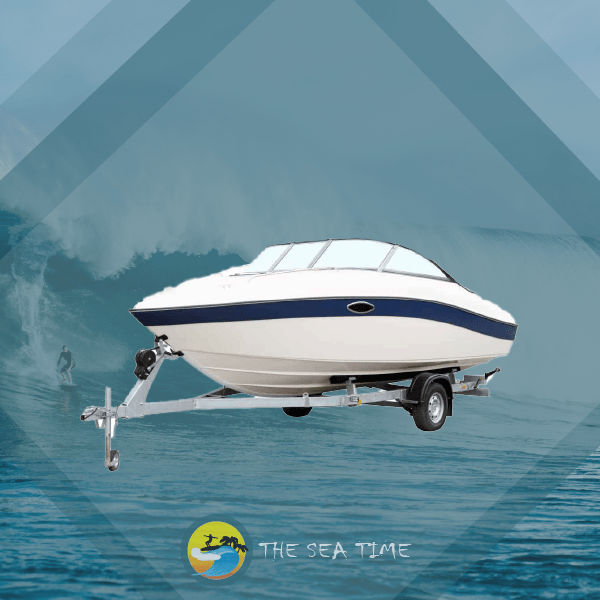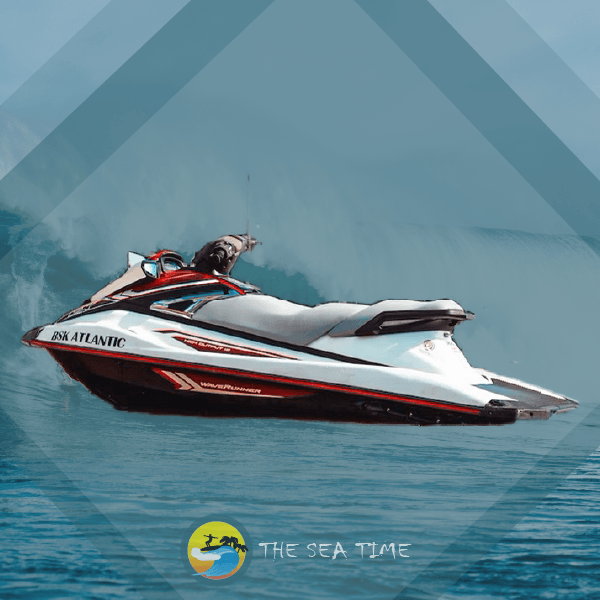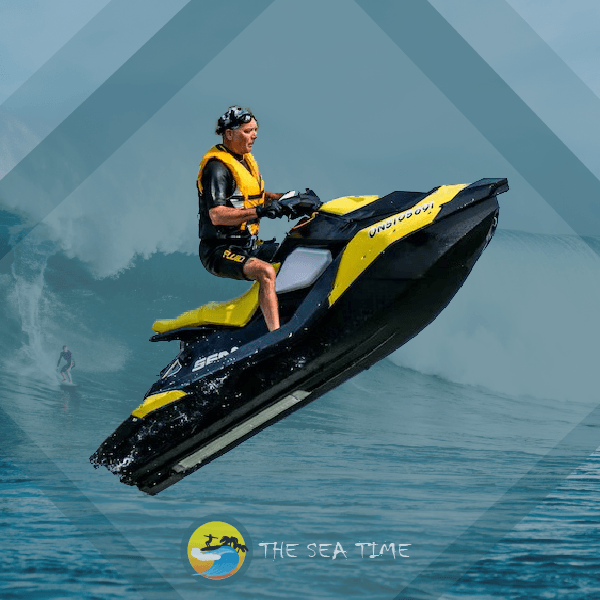Boat and Jet Ski ownership is a longtime goal for many people who like water sports. It is a luxury that comes with a high price to be able to hit the water anytime you choose. That’s why it’s crucial to pick a watercraft that’s suitable for the task at hand. Owning a boat or jet ski comes with benefits and drawbacks. Get informed on the ins and outs of boat ownership before deciding the type of watercraft that is right for you.
Jet Skies are Cheaper than Boats
When purchasing a boat or jet ski, the price is often one of the first factors people think about. Next, you need to determine how much of a boat or jet ski you can afford if you’ve decided that you can afford to buy one. There is a significant price disparity between boats and jet skis. Although not relatively cheap, jet skis are typically less expensive than boats. The newest stock jet ski models start at around $20,000 for the costliest. It’s a lot of money, but you can find them for much less than the Boat’s price. Boats with comparable capabilities can vary significantly in price
The most recent model year will begin where jet ski costs left off. The low end for brand new boats will be under $20,000, while the high end will be practically limitless. It’s not unusual for the cost of a brand new, high-end jet boat to exceed $100,000.

Jet Ski is Smaller in Size
Anyone who has seen a jet ski or personal watercraft understands that it is substantially smaller than a traditional boat. Indeed, the United States Coast Guard specifies that a Jet ski can’t be longer than 13 feet to qualify as personal watercraft. Typically, boats on a lake or offshore can range from 15 feet to 40 or more feet long. When considering size, there are benefits and drawbacks to both extensive and trim options. The answer lies in the purpose for which the Boat is being used.
Jet Ski is Lighter in Weight
The PWC weighs significantly less than conventional boats due to its compact design. Most jet skis will weigh in at under 1,500 kg. Being so light makes transporting them somewhat easy. In contrast, the weight of a larger boat will be at least four or five times more, if not more.
Cleaning Jet Skis is Easier
The compact design of a jet ski makes it easy to clean. Detailing a large boat may take two hours or more, but a jet ski can be done in under an hour.
Jet Skies are More Accessible to Maintenance
As with cars, boats need regular tune-ups to keep them running smoothly. Repairs on jet skis are typically less expensive than those on larger vehicles because of their size and the shorter time needed to complete the task. Due to their compact size and lack of extraneous features, these boats could be easier to maintain and repair on your own. In general, jet skis require less Maintenance, and fewer things can go wrong.
Jet Ski Occupies Less Space
A storage unit’s size is a significant factor in how much space it provides. It is essential to have storage space for your Boat if you intend to keep it at your residence. A jet ski doesn’t take up much more room than, for example, a large riding lawn mower, so it’s no problem to store it in a standard garage. A boat can take up an entire garage by itself.
Renting a slip in a marina is another option for stowing a boat. This is a viable alternative if you only plan on riding at one specific lake or beach. The price of a docking place at a marina for a boat or PWC often varies with its size. The cost of renting a PWC is usually the same regardless of the marina you choose.

Jet Skies are More Fuel Economy
Many factors affect how much fuel a jet ski or Boat uses. The amount of gas used can be affected by the Boat’s speed, the water’s temperature, and the load. However, jet skis often have more efficient engines. Marine vessels’ fuel efficiency is expressed in gph, gallons per hour, rather than mpg. With a constant speed of roughly 35 mph, the average jet ski will consume about 6 mph of fuel. At the same speed, a larger boat with a larger engine will use around 13 mph. More substantial jet ski engines will consume more power, but that is not always the case. In terms of fuel efficiency, jet skis typically win out over other watercraft.
Power of Boat & Jet Ski
A boat could be the best option if you care only about speed and power. Even while jet skis can reach speeds of up to 60 miles per hour, boats can accommodate significantly more powerful engines due to their larger size. There is, of course, a price to pay for increased velocity and power.
Jet Skies are of Less Capacity.
The Boat also easily wins in terms of its ability to transport people. The maximum number of passengers allowed on a jet ski is typically three, though it can hold four in some cases if the passengers are tiny enough. And many boats can safely carry twice that many passengers. Having more people on board means fewer excursions back to shore to swap riders, which in turn means more time spent having fun.
Uses of Both Watercrafts
Jet skis can be customized for various uses, including fishing, towing water activities like water skiing and wakeboarding, and even just going for longer, more relaxed rides. However, boats ultimately prove to be superior. With their larger dimensions, ships can carry a substantial quantity of cargo. A boat significantly increases the number of fish you can retain if fishing is your passion. There is more room for passengers, so you can bring along the whole gang for a sightseeing trip. Two tubes or two wakeboards can be used simultaneously. Boats can accommodate more of your activities, but there is one exception. When it comes to jumps, jet skis are far superior. You can’t go wrong with any option if you’re thinking about getting into magic tricks. It’s not that easy if you want to do anything else. Which one is better depends on your desired activity level; if you want to do as much as possible, a boat is a way to go, but if you want to get in and get out quickly and easily, a jet ski is a way to go.

Varieties of Boats and Jet Ski
There are just two distinct types of jet skis: those designed for standing and those designed for sitting. While some jet skis are designed for a more comfortable ride, others are built for speed; they can all do the same things on the water. Now, boats are a very different story. Jet boats, hovercraft, bass boats, yachts, sailboats, and wake boats are a few examples; there are likely many more. Choose wisely among these boats because each has its own strengths and weaknesses.
Jet Skies have Less Fuel Capacity.
In this respect, the boats again excel due to their larger size. Most giant jet skis can typically hold up to 20 gallons of fuel. This is a respectable sum, and when coupled with their exceptional fuel efficiency, it allows for extended periods on the water. However, boats’ fuel capacity will range from 50 to 80 gallons. While they may not be as fuel efficient overall, the extra power of their tanks will let you spend more time on the water.
Safety on Watercrafts
Whenever you’re out on the water, it’s crucial to take precautions. Safe boating practices are also applicable to jet skis. Everyone taking part is expected to wear a life jacket, and standard boating etiquette applies. A jet ski’s tiny size should not be mistaken for lack of safety. Jet skis are inherently safer than many other boats because they lack external propellers. Jet skis are relatively sturdy vessels, and capsizing shouldn’t be a significant worry for those who use them with care. Because of its diminutive dimensions, a jet ski would fare poorly in the case of a collision with a larger boat. A jet ski rider would be in increased danger of serious harm should a boat twice the size of the jet ski collides. The focus should be on the people operating the watercraft rather than the watercraft itself because safety depends nearly exclusively on the people using it.
License Insurance
Some people falsely assume they do not need a boating license to drive a jet ski because these vehicles are much smaller than traditional vessels. The opposite is true. You need a permit to operate a jet ski, just like you would a boat, so be sure you have one before you hit the lake. State licensing regulations vary widely. Whether you’re taking a boat or a PWC out on the water, it’s essential to be familiar with and abide by local laws.
The Comfort Level of Boat and Ski Jet
As was previously noted, jet skis have gone a long way in terms of power and comfort over the years. Once made of hard plastic, seats are now much more comfortable. You can stay on the bike for longer than you could, even 20 or 30 years ago, but that doesn’t mean it won’t grow boring. It’s hard to change your position much while riding a jet ski. A boat allows you to get up and move around or even lie down for a while if you feel the need for variety. You can’t even lay back on the jet ski seat, so it’s already at a disadvantage.

Accessories of Boat and Jet Ski
There is no apparent benefit in this part either. Most of the attachments for boats and jet skis are interchangeable. Some examples are speakers, lighting for night riding, a cooler, and a holder for fishing poles. The size advantage boats have over other vehicles allows them to carry more and more extensive accessories. There are insane stereo systems on the ships that you won’t find on a jet ski.
Exercise Vs. Leisure
Different levels of physical exertion can be attained on boats and jet skis. Driving a boat requires hardly any physical dexterity. It’s like going because you sit in a car and steer with a wheel. You’ll need to put in a little more on a jet ski. You must keep your straight back and shoulders in place while the car speeds up, slows down, and makes quick curves. This requires a lot of core strength, as well as some leg and upper body strength. To that end, jet ski riding can be an excellent exercise for those who value physical fitness.
Summary-Making the Decision
You should consider how the watercraft will fit into your lifestyle when purchasing a jet ski or a boat. Do you have space and money to keep the ship safe? What are your plans for putting it to use? The more time you give yourself to think about these issues, the more likely you are to make the best decision for yourself. You’ll have a great time out on the water regardless of what kind of watercraft you buy.

One Response